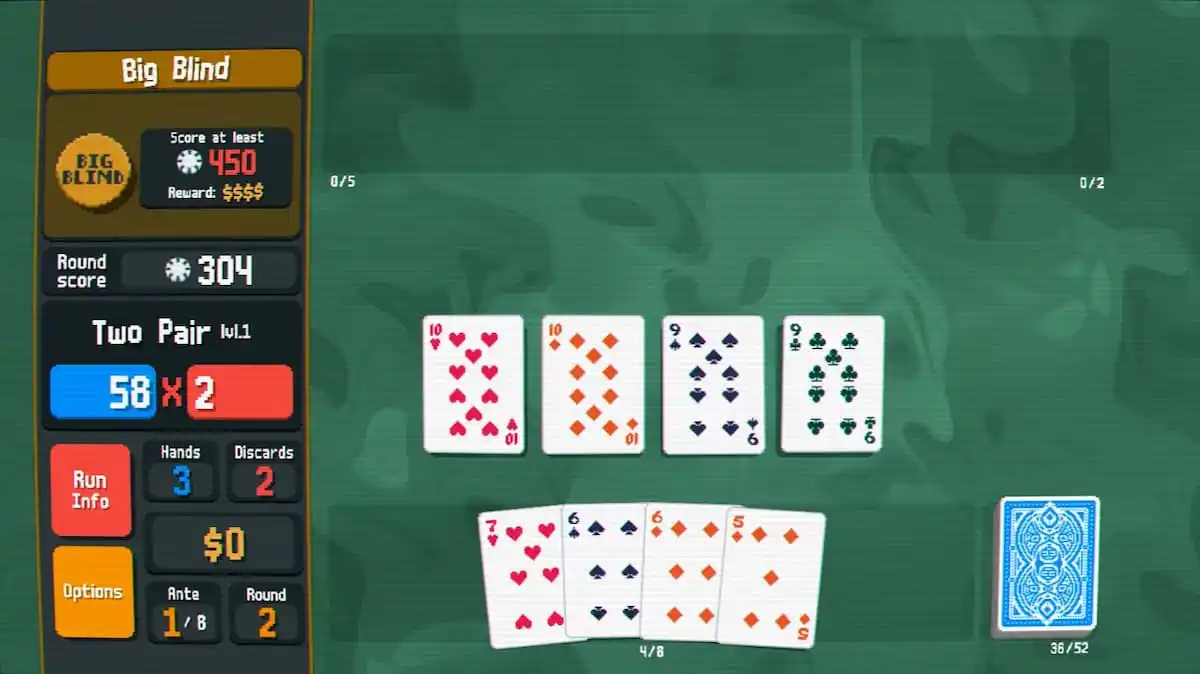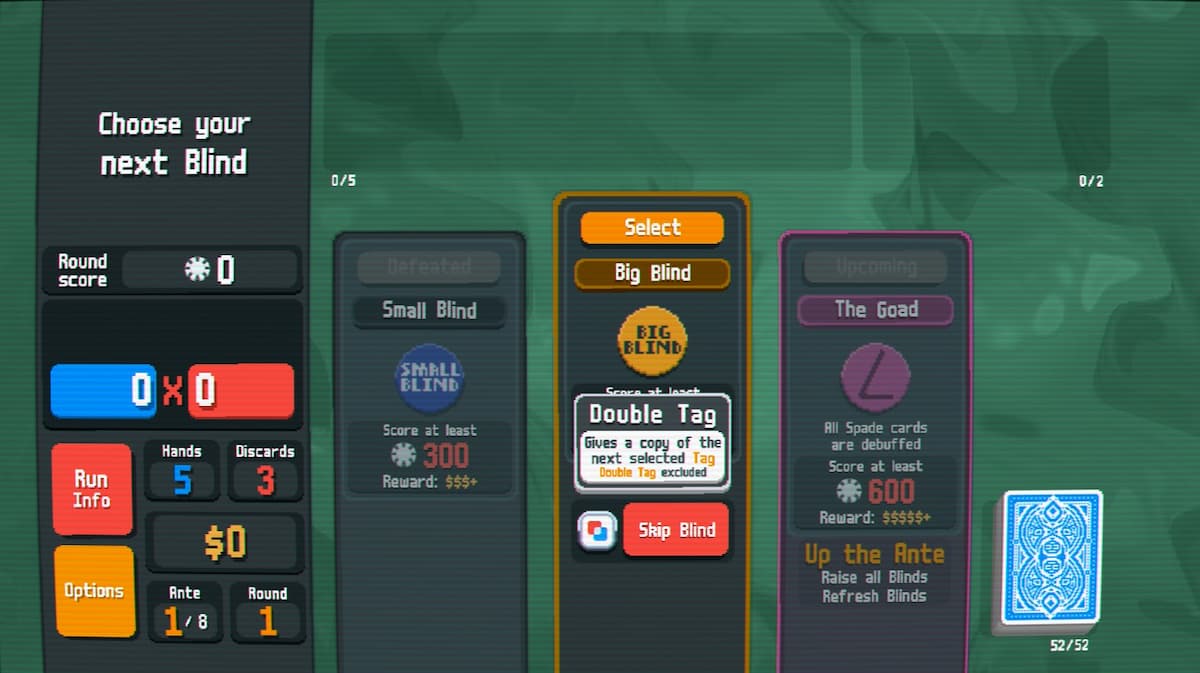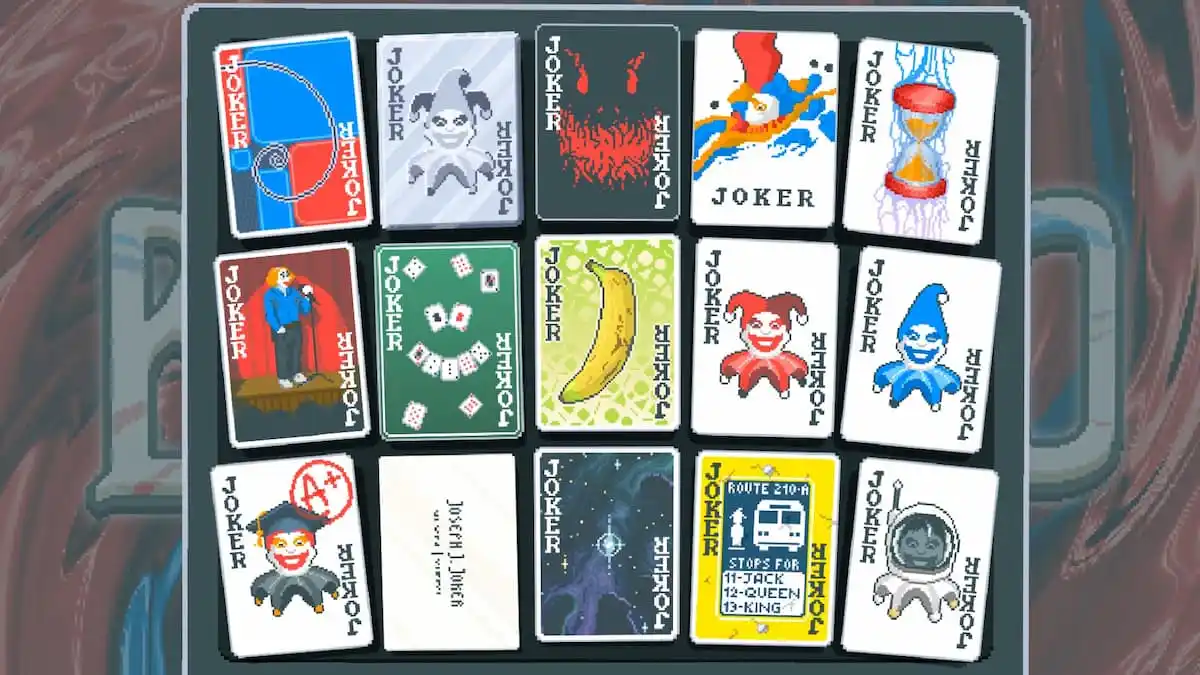If you told me just last week that I’d eventually get addicted to a video game about poker, I would’ve laughed in your face. Well, maybe not, because I’m a nice person who doesn’t laugh in people’s faces, but I would’ve, at the very least, chuckled.
Balatro is a new poker roguelike game made by solo developer LocalThunk. You’ve probably heard of it by now – whether it’s through social media or just looking at the Steam charts – and I’m pleased to report it is, indeed, very good. It’s so good, in fact, that within the past 72 hours, Balatro has completely turned my sleep schedule upside-down.
I must emphasize that this is a big week for video games. Nightingale is out, and as a fan of survival games, naturally that means I must absolutely dedicate at least 100 hours to playing that. Final Fantasy VII Rebirth has dropped this week –only one of the biggest game launches of 2024– and while I’ve been lucky enough to play it via an early copy from Square Enix, I’ve decided to put it down at least for now.
Instead, I’m choosing to spend all of my free time jabbing away at my Switch, visualizing possible poker hands as I hit that discard button. Sometimes I’m clicking away at my computer, trying to figure out the best Jokers I want for this particular run because, yes, I am now a person who owns Balatro on two platforms so I can play it any way and anywhere I please.
So what exactly is Balatro? To distill it to its purest form, this is a deck-building roguelike that tasks you with scoring points by playing poker hands.

As you’re first getting started, everything plays out like regular poker. Though instead of waiting for a dealer to flip over cards each turn, you’re identifying poker hands from a hand size of seven. You’ll be able to discard up to five cards each hand, though you can only do this a certain number of times. The goal here is to win a Blind (read: stage) by playing good enough hands to meet the requisite score.
Then, things get complicated. And weird.
As you progress through the Blinds, the required scores get higher, and you start to realize that you need to get creative to meet those lofty requirements. That’s where the Jokers come in, and the meaning behind the game’s title becomes instantly clear.
In Ancient Rome, the term “balatro” was used to refer to a court jester or buffoon. In the game itself, you get to acquire up to five different Joker cards which drastically change the way you approach a run.
One Joker may reward you with extra Chips for playing a specific hand, while others may give you a higher Mult (read: multiplier) for using up all of your discards. There are crazier Joker effects out there, including ones that spawn Tarot cards each time you play something, or ones that give you insanely high Mults but have a 25% chance of breaking each turn. This is where the roguelike aspect comes into play: if you want to successfully complete a run of Balatro, you need to know how to make full use of your Jokers, and you need to know how to synergize them.
With 150 Jokers currently available in the game, the synergy possibilities feel endless. And like any good roguelike game, these Jokers are what make every run feel so unique and fresh. You’re essentially doing the same thing every round: figure out the highest scoring poker hand you can play. But the Jokers and various other modifiers you get from Tarot, Planet, and Spectral cards can really change the way you think about the game.
To make things even more complicated, the Boss Blinds in Balatro also come with fun handicaps that can force you to completely throw your strategy out the door. In one run, I’d built my entire strategy around face cards. I had a Joker that considered every card a face card (though they’d retain their original numerical values), which was great, because I had another Joker that would give me +4 Mult for each scored face card. Basically, this means easy big numbers every Blind. What could go wrong, right?

Of course, it had to be that very same run where I run into a Boss Blind with a modifier that states every face card drawn will be face down. Because all my cards are now considered face cards, this meant that every card I drew was face down and I wouldn’t be able to tell what was in my hand or how I could even play it. Fantastic.
It was one of the most bizarre experiences I’d ever had playing a video game, and while it was a little disheartening to have such a good run end like that, it also speaks to the uniqueness and wackiness you can potentially encounter in this game. It’s made less frustrating by the fact that it’s generally very hard to get completely screwed over by the game, and there are almost always ways you can get around these disadvantages.
Loath as I am to use the word, Balatro has become a very fun addiction. It certainly doesn’t help that the game is so snappy; ending or starting a run happens within just a couple seconds, making this one of the more streamlined roguelikes I’ve ever played. Its retro CRT aesthetic and subtle screen shakes whenever you play a hand also make it so damn satisfying to play and look at.
Balatro isn’t just fun to play, it’s also a treat for the senses, and I find myself constantly amazed by how such a tiny, unassuming game can have so much depth packed into it. It might be too early to call it a Game of the Year contender, but after the fantastic run we’ve seen in the roguelike genre over the past five years or so, it’s encouraging to see developers continue to innovate and push boundaries within that space. Balatro is one of the most unique roguelikes you’ll play this year, and it’s one that genre fans should absolutely have on their radar.
Balatro is now available on PC and consoles.






Published: Mar 2, 2024 09:00 am